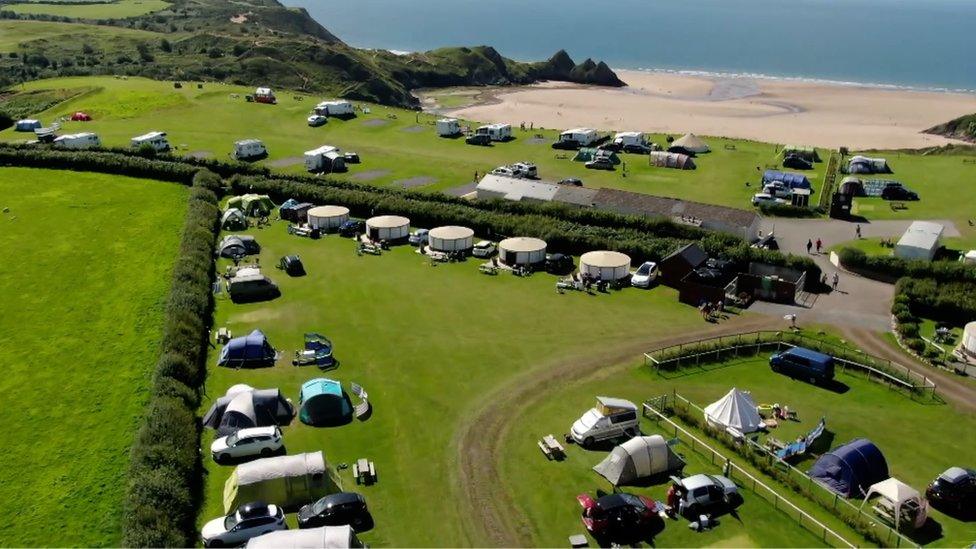'Wild' camping and illegal overnight parking fears as lockdown eased
- Published
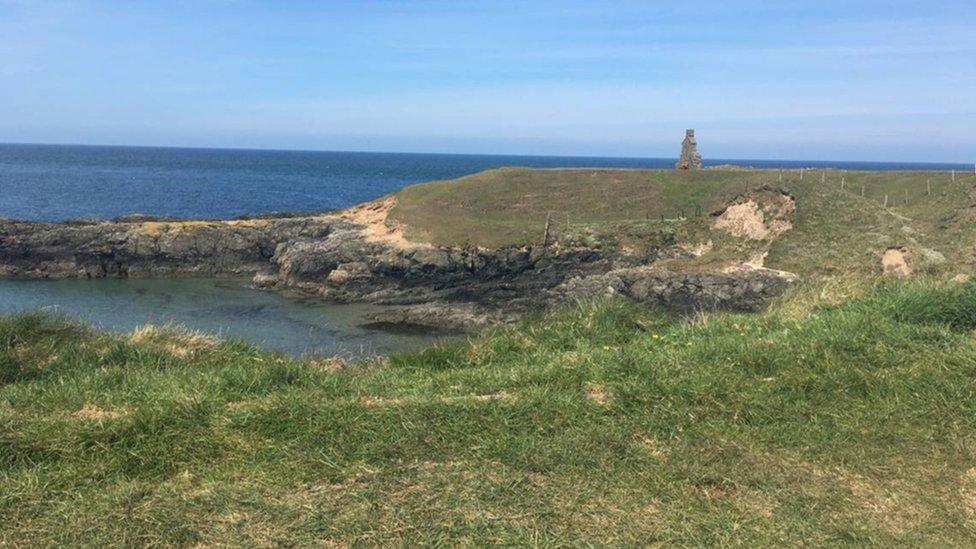
Porth Ysgadan is a quiet, remote bay near the village of Tudweiliog on the Lleyn Peninsula
There are fears a beauty spot could be left covered in litter if "wild" camping and illegal overnight parking increase with lockdown restrictions being eased.
In Porth Ysgaden, Gwynedd, there were reports of human waste left on paths and toilets emptied into the sea last year after people parked up overnight.
One wild camper said most of them left no trace and cleaned up after others.
However, some living nearby fear the situation could get worse this summer.
Chris Brady of Tudweiliog Community Council said he feared the area could be inundated with "wild" campers and people parking illegally overnight as more people opt to holiday in the UK because of Covid-19.
"We don't mind them coming here to enjoy the views, but some of the campers have no respect at all and I think the situation will get worse this summer," he said.
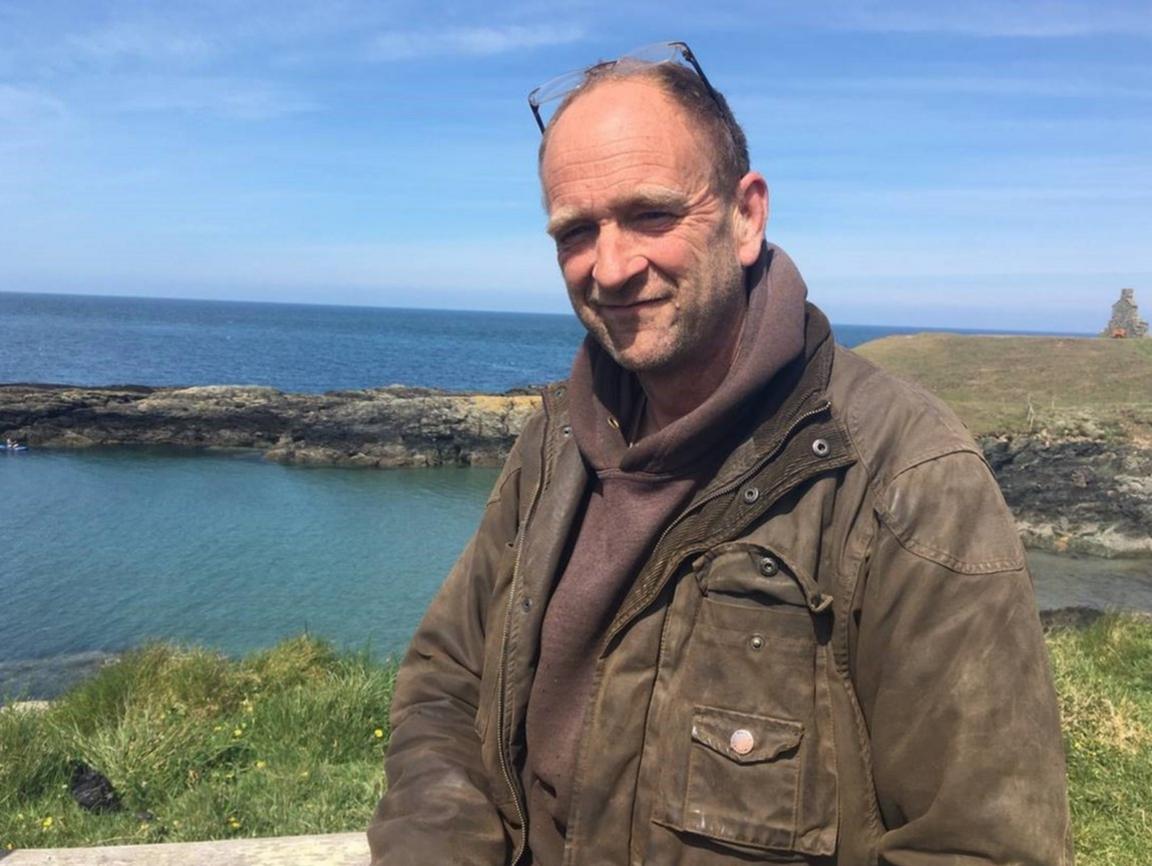
Mr Brady is worried the situation will get worse as the majority of holidaymakers opt to stay in the UK this summer
Is wild camping illegal?
In Wales and England you only have the right to camp on land belonging to someone else if you have the permission of the landowner.
If you do so without permission you are committing trespass - a civil offence which you cannot be arrested for. But if you don't leave immediately when asked to do so by the landowner - or somebody acting on their behalf - you may be committing the criminal offence of aggravated trespass.
Scotland is different, as most unenclosed land is legal to camp on, external.
In Wales, there is a code of conduct for campers to follow which is based on a principle of "leave no trace", with campers urged to bury toilet waste away from water sources, pick up litter and leave if asked to.
But there have been concerns about a growing number of so-called "fly campers" or "dirty campers" - where people leave behind their camping gear - including tents, chairs and barbecues after staying illegally in the outdoors.

'Human waste on paths'
Councillor Seimon Glyn said that while most people with campervans stayed on nominated sites, some preferred the wild.
"We often find evidence of people leaving human waste on paths and the contents from portable toilets being poured into the sea," he said.
"That concerns us - not only from an environmental point of view, but also because of health and safety."
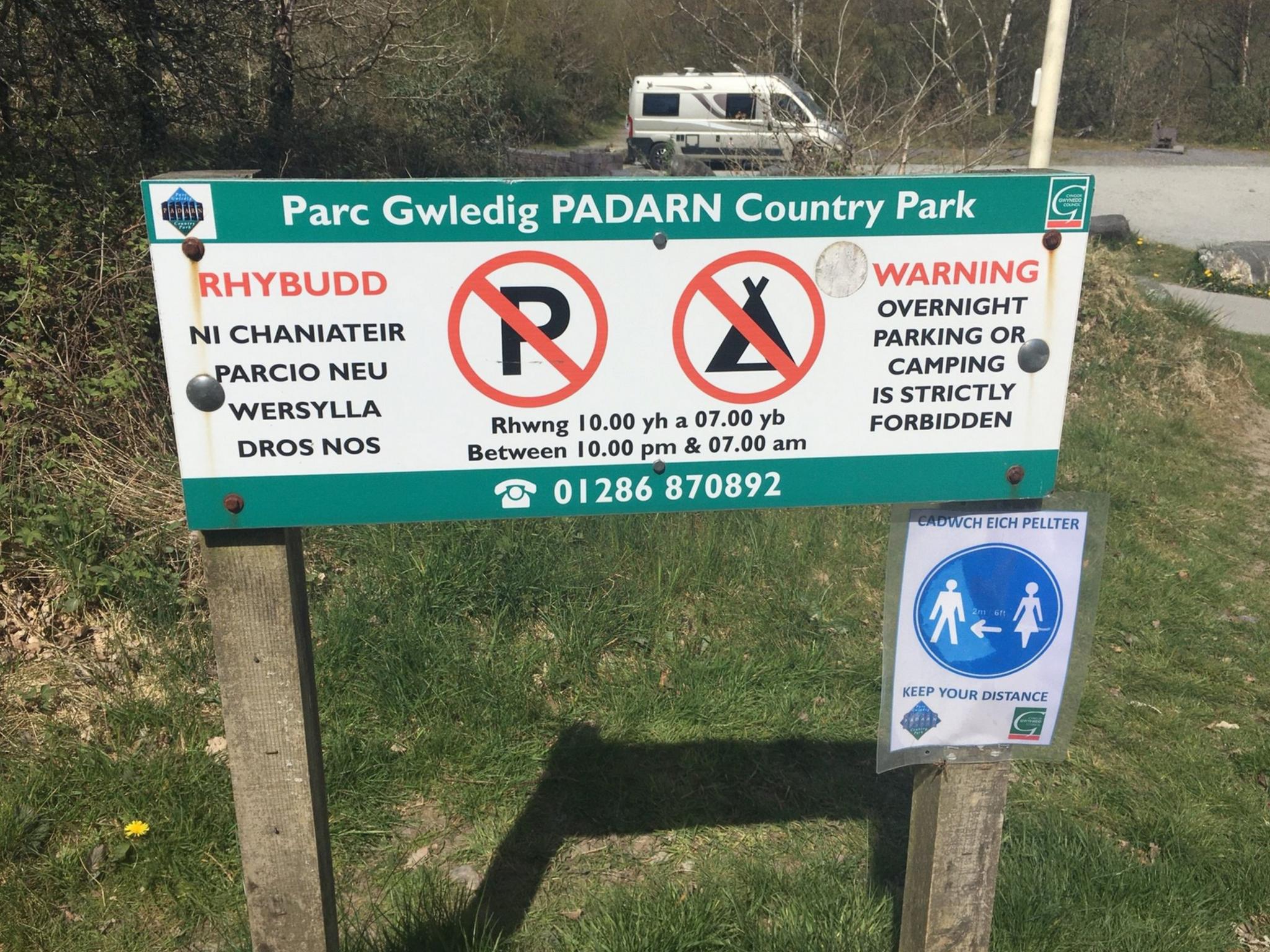
Gwynedd council says signs telling people not to park are being ignored
Gwynedd council is putting up more signs in the area, warning people not to camp overnight, but Mr Glyn said they were "already being ignored".
"This isn't an issue that is unique to Porth Ysgadan, all across Wales other beauty spots are facing similar problems," he said.
A number of councils told Newyddion S4C they had recorded an increase in wild camping last year and the programme has seen footage of people "wild" camping at Padarn Park in Llanberis, Snowdonia, despite clear signs asking people not to stay overnight.
One wild camper said most campers were respectful, external, leaving no trace, and even cleaning up after others.
"We only want to spend as much time in nature as possible, I think as long as we care for the environment we are in and leave it in a better state than we found it, what's the harm?
"As with any land, if we are asked to move by the landowner we would do so without hesitation."
The British Mountaineering Council said the vast majority of visitors were keen not to harm the environment and said it had launched a new tool kit to try and help people to leave no trace and camp in the most sustainable way.
Gwynedd Council said it employed a specialist security team "to shut the car park gates every evening and to deal with any cases of wild camping".
In Pembrokeshire, the council has introduced early morning patrols, issuing fines of up to £70 to tackle the rise in illegal overnight parking.
Marc Owen, Pembrokeshire's streetcare and parking manager, said it was "a big issue in 2020" with littering, waste disposal and throw-away barbecues causing problems.
"We live in a beautiful county. This year so far it hasn't been so bad - but it is early in the season," he said.
"It is adding extra pressures and extra tension within communities. We need to make sure that people who come down to Pembrokeshire protect, preserve and respect the area."
'It's not wild camping it's fly camping'
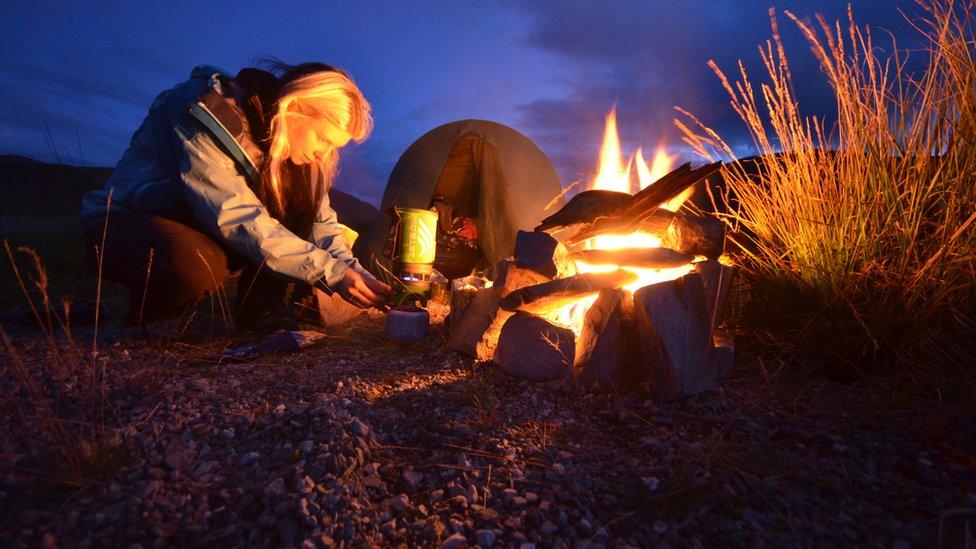
Phoebe Smith said wild campers would not leave litter when they leave
Phoebe Smith is a wild camper and author and said the scenes did not reflect the values of wild campers.
She said: "If you are a true wild camper, no-one should even know you've done it, you would take out all your rubbish with you, which includes toilet waste, and the only thing that would be left behind would maybe be an indentation on the grass of your tent.
"The images we're seeing is not wild camping it's fly camping."
She added that because of the ongoing pandemic and lockdown restrictions, a lot of people who do not understand how to wild camp properly are taking to it as they have not been able to go to campsites and that people should be encouraged to continue, but in the correct way.
She said: "In order to make people care about the natural world and to protect it, you have to do something to make them fall in love with it, which means making it very accessible especially inner city kids."
She added that in some parks in England, it was legal and because of that "local children are taught from a young age how to do it responsibly, which means that it's not just completely covered with litter and people aren't doing it incorrectly".
- Published28 August 2020
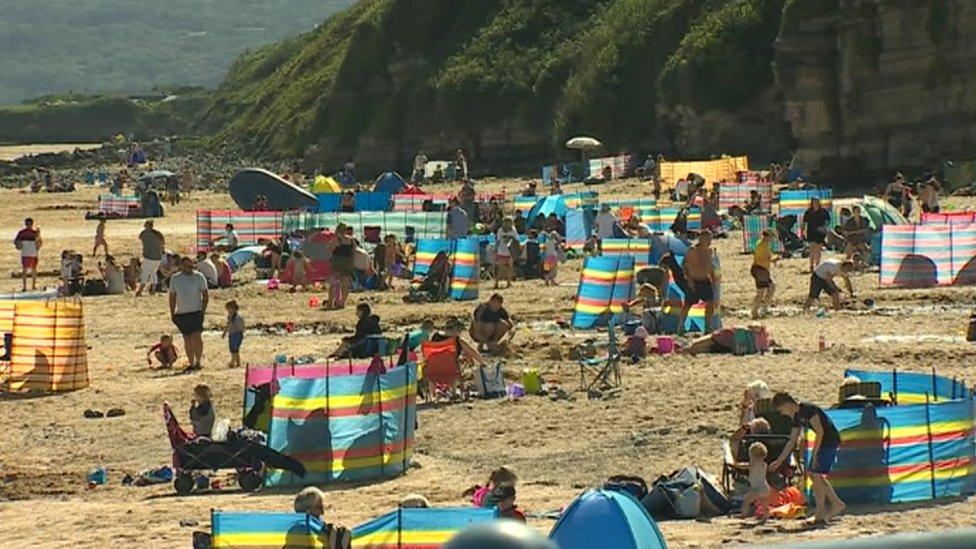
- Published7 August 2020
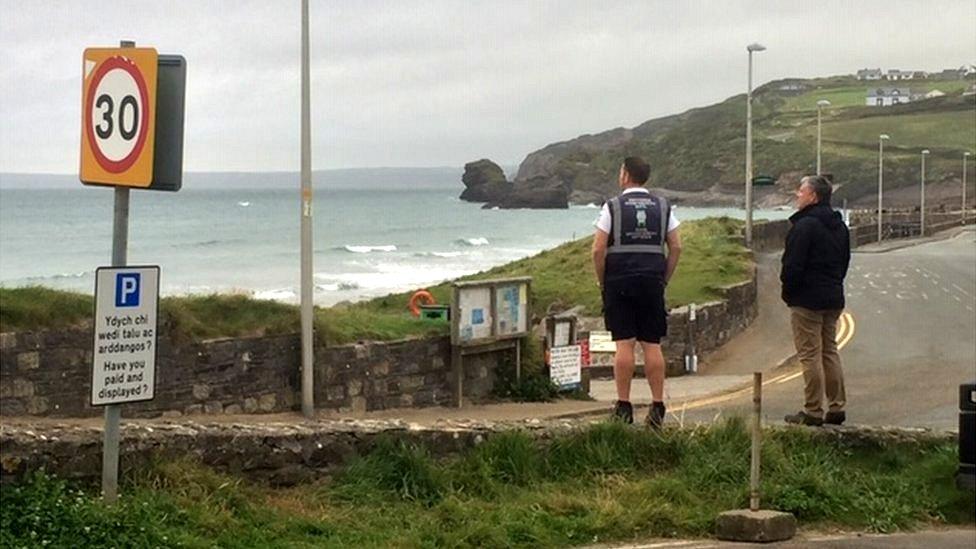
- Published5 August 2020
